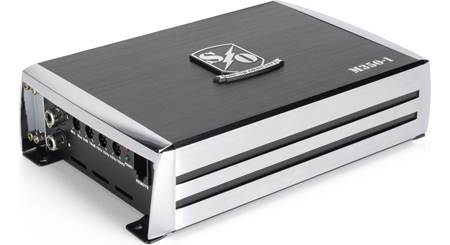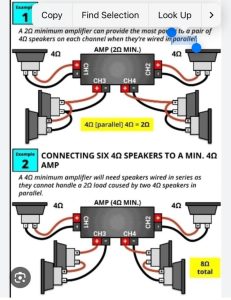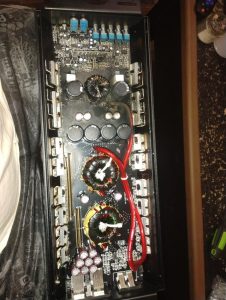Have you ever wondered why some car audio systems sound so much better than others? The secret often lies in one important device: the amplifier.
But what does an amplifier really do in your car audio system? Understanding this can change the way you experience music on the road. If you want clearer sound, stronger bass, and an overall richer listening experience, keep reading. This article will break down exactly how an amplifier works and why it might be the missing piece in your car’s sound setup.
Role Of An Amplifier
An amplifier plays a key role in a car audio system. It boosts the audio signals from the head unit. This process makes the sound stronger and clearer. Without an amplifier, the sound may be weak or distorted. The amplifier helps deliver better sound quality inside the vehicle.
Enhancing Audio Signals
The amplifier receives low-level signals from the car stereo. It increases these signals to a higher level. This allows the audio to be powerful enough for the speakers. The amplifier keeps the sound clear and free from noise. It improves the overall listening experience by making music louder and richer.
Driving Speakers Efficiently
Speakers need enough power to perform well. The amplifier supplies this power to the speakers. It controls the flow of electricity so speakers work smoothly. This prevents damage caused by too little or too much power. The amplifier helps speakers produce deep bass and crisp highs. It ensures balanced sound across all frequencies.
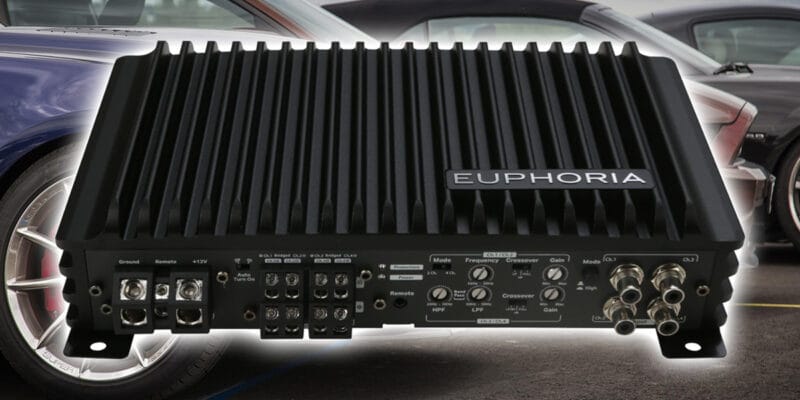
Credit: www.bestcaraudio.com
Types Of Car Amplifiers
Car amplifiers come in different types, each designed to enhance your audio experience in unique ways. Knowing which type suits your setup helps you get the best sound quality and power. Let’s break down the main categories of car amplifiers so you can decide what fits your needs.
Mono Amplifiers
Mono amplifiers, or monoblocks, focus on delivering power to a single channel, usually a subwoofer. They are perfect if you want deep, punchy bass in your car. I once swapped my multi-channel amp for a mono amp just for the sub, and the difference in bass clarity was night and day.
Because they specialize in one channel, mono amps are often more powerful and efficient for low-frequency sounds. If your goal is to boost bass without worrying about other speakers, a mono amp is likely your best choice.
Multi-channel Amplifiers
Multi-channel amplifiers provide power to multiple speakers at once—usually two, four, or even more channels. This makes them great for a full car audio setup where you want to power front and rear speakers simultaneously. If you want balanced sound throughout your car, a multi-channel amp can simplify your system.
They save space and reduce complexity since you don’t need separate amps for each speaker. Think about your current system: do you want to upgrade all speakers together or just add more power to one? Multi-channel amps help you do both efficiently.
Class A, B, Ab, And D Amplifiers
These classes describe how an amplifier works electrically and affect sound quality and efficiency. Class A amps offer the best sound but use more power and generate heat. Class B amps are more efficient but can introduce distortion.
Class AB amps combine the best of both—good sound quality with better efficiency. Class D amps are highly efficient and compact, making them popular for subwoofers and modern setups. Ever noticed how some amps stay cool while others get hot? That’s often due to their class type.
Choosing the right class depends on whether you value sound purity or power efficiency more. What’s more important to you—crystal-clear sound or a system that won’t drain your car battery?
How Amplifiers Boost Sound
Amplifiers play a vital role in car audio systems by enhancing the sound quality and volume. They take weak audio signals and make them stronger. This allows speakers and subwoofers to produce clear and loud sound without distortion. Understanding how amplifiers boost sound helps appreciate their importance in a car audio setup.
Increasing Power Output
Amplifiers increase the power output sent to speakers and subwoofers. The original audio signal is too weak to drive these devices directly. The amplifier boosts the electrical signal’s strength, making the sound louder. This extra power helps the speakers move more air, creating deeper bass and clearer highs.
Without enough power, speakers will sound flat and quiet. Amplifiers ensure music fills the car interior with rich and vibrant sound. They match the power needs of your audio system for optimal performance.
Reducing Signal Distortion
Amplifiers also reduce signal distortion, which happens when sound becomes unclear or fuzzy. A good amplifier cleans up the audio signal before sending it to the speakers. This keeps the sound crisp and true to the original recording.
Distortion can make music sound harsh or unpleasant. Amplifiers use advanced circuits to minimize this problem. They maintain sound clarity even at high volumes, so every note and beat comes through perfectly.
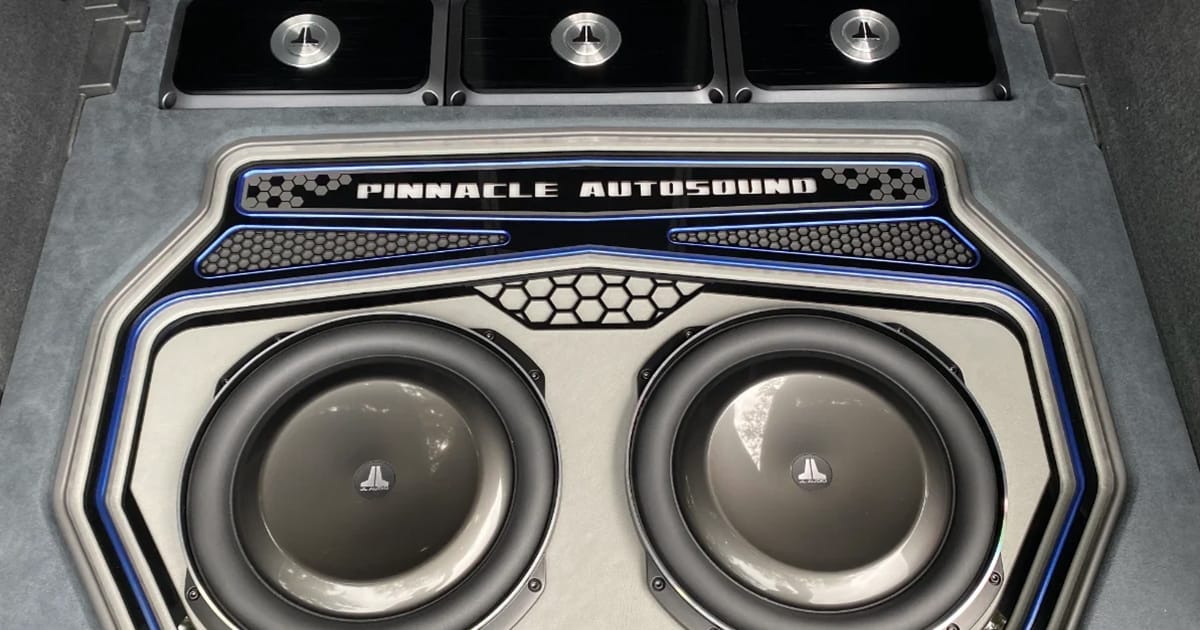
Credit: www.bestcaraudio.com
Installation And Placement
Installing and placing an amplifier in your car audio system isn’t just about fitting it somewhere. The right setup impacts sound quality, safety, and even your vehicle’s electrical health. Let’s break down how to choose the best spot and handle wiring with care.
Choosing The Right Location
Pick a location that keeps your amplifier cool and safe. Amplifiers generate heat, so avoid cramped spots with poor airflow, like behind seats or under heavy cushions.
Think about accessibility too. You want to reach the amp easily for adjustments or troubleshooting without dismantling parts of your car interior.
Many people place the amp in the trunk or under a seat. If you use the trunk, make sure there’s enough ventilation. Under-seat placements can reduce cable lengths but check for clearance to avoid damage.
Wiring And Connections
Wiring is where many mistakes happen. Use quality cables designed for car audio to prevent signal loss and interference.
Keep power and signal wires separate. Running them side by side can cause noise in your audio system.
- Use a fuse close to the battery to protect your system.
- Secure all connections tightly to avoid shorts or disconnections.
- Measure twice before cutting wires; a little extra length can save headaches later.
Have you ever heard a buzzing sound after installing an amp? That often means wiring issues. Checking and organizing your cables can fix this fast.
Benefits Of Using An Amplifier
Using an amplifier in a car audio system brings clear benefits. It enhances the overall listening experience. The amplifier powers the speakers better than the car’s built-in system alone. Here are key advantages of adding an amplifier to your setup.
Improved Sound Quality
An amplifier delivers cleaner and clearer sound. It reduces distortion even at higher volumes. This means music sounds more natural and detailed. You hear every instrument and vocal more clearly. The sound feels richer and more dynamic.
Higher Volume Levels
Amplifiers allow you to increase volume without losing sound quality. The power boost helps fill the car interior with strong, clear sound. You can enjoy louder music without crackling or popping noises. This is perfect for those who love powerful sound.
Better Speaker Performance
Amplifiers provide the right power for each speaker. This prevents speakers from straining or getting damaged. They perform at their best with the correct power supply. It also improves bass response and overall balance. Your speakers will last longer and sound better.

Credit: www.youtube.com
Common Amplifier Features
Car audio amplifiers come with features that improve sound quality and control. These features let you adjust audio settings to match your preferences. They help balance the power and clarity of your music. Understanding these common features can enhance your listening experience.
Gain Control
Gain control sets the amplifier’s input sensitivity. It matches the signal level from the head unit. Proper gain adjustment prevents distortion and noise. It ensures clean and clear sound output. Too high gain can cause harsh sound. Too low gain results in weak audio.
Crossover Settings
Crossover settings divide audio signals by frequency. They send the right sounds to the right speakers. High-pass filters send high frequencies to tweeters. Low-pass filters send low frequencies to subwoofers. This separation improves sound clarity and speaker protection.
Bass Boost
Bass boost increases low-frequency sounds for deeper bass. It adds power to bass notes without extra volume. Use it to enhance music genres like hip-hop or rock. Too much bass boost may cause distortion. Adjust it carefully for balanced sound.
Troubleshooting Amplifier Issues
Troubleshooting amplifier issues can feel overwhelming, but understanding common problems helps you fix your car audio system faster. Your amplifier plays a crucial role in powering speakers and delivering clear sound. Spotting issues early saves you from costly repairs and downtime.
Overheating Problems
Amplifiers generate heat, but too much can cause shutdowns or damage. Check if your amp gets hot after a short time; this often means poor ventilation or a mismatch in speaker impedance.
Make sure your amplifier is mounted in a well-ventilated area. Dust buildup inside the amp can block airflow—clean it carefully with compressed air. Also, consider if your speakers’ resistance matches the amp’s requirements; an improper match can cause it to overwork and overheat.
Distorted Sound
Distortion usually points to clipping, where the amplifier is pushed beyond its limits. This can happen if you crank the volume too high or the gain settings are off.
Try lowering the volume or adjusting the gain knob to reduce distortion. Faulty wiring or loose connections can also cause crackling or buzzing sounds, so inspect your cables closely. Have you checked if your speakers themselves are damaged? Sometimes distortion comes from the speakers, not the amp.
Power Supply Concerns
Your amplifier needs a steady power supply to perform well. A weak or fluctuating voltage can cause the amp to cut out or perform inconsistently.
Inspect the power cable for any signs of wear or poor connections. Ensure the ground wire is securely attached to a clean metal surface to avoid electrical noise or shorts. If your car’s battery or alternator is failing, it may not provide enough power for the amplifier—consider testing those components if issues persist.
Frequently Asked Questions
What Is The Main Role Of An Amplifier In Car Audio?
An amplifier boosts the audio signal power for clearer, louder sound. It enhances speaker performance by providing stronger, distortion-free audio output. This improves overall sound quality and listening experience inside your car.
How Does A Car Amplifier Improve Sound Quality?
A car amplifier increases signal strength, reducing audio distortion and noise. It delivers cleaner, more precise sound with better bass and clarity. This makes music sound richer and more immersive during your drive.
Can I Use A Car Audio System Without An Amplifier?
Yes, but sound quality and volume will be limited. Factory or basic systems often lack power to drive high-quality speakers. An amplifier is essential for superior sound performance and louder, clearer audio in your car.
What Types Of Amplifiers Work Best For Cars?
Class D amplifiers are efficient and compact, ideal for cars. Class AB offers excellent sound quality but uses more power. Choose based on your sound preferences, power needs, and vehicle space.
Conclusion
An amplifier in a car audio system boosts sound quality. It enhances the music’s clarity, making it more enjoyable. With an amplifier, you hear every beat and note better. It provides the power needed for speakers to perform well. This results in a richer, fuller sound experience while driving.
Installing an amplifier can transform your car rides. It’s a worthy addition for music lovers. Whether you enjoy rock, jazz, or pop, an amplifier improves your listening experience. Consider adding one to your car audio system for better sound. Enjoy your music like never before.

